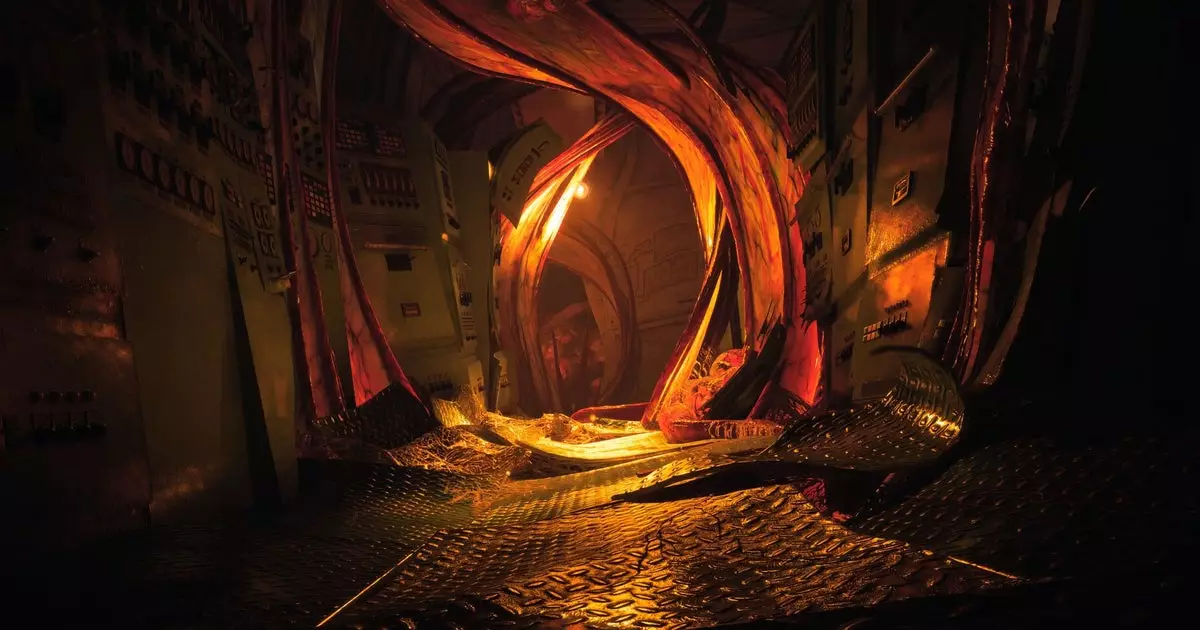Once largely recognized for their pioneering approach to environmental storytelling, The Chinese Room carved a niche in the gaming world with titles that prioritized atmosphere and narrative over traditional mechanics. Founded by a small group of scholarly modders from Half-Life 2, their early work, especially *Dear Esther*, redefined what a video game could be, transforming it from simple entertainment into an introspective art form. These formative years highlight a willingness to challenge norms—a trait that continues to resonate today. Their subsequent collaborations, including *Amnesia: A Machine For Pigs* and *Everybody’s Gone to the Rapture*, cemented their reputation as creators of emotionally profound, beautifully crafted experiences.
Critically, The Chinese Room’s emphasis on storytelling fused with environmental immersion set them apart from conventional indie developers. Their games are less about gameplay mechanics and more about evoking mood, provoking thought, and fostering emotional depth. It’s this unique identity that has made the studio highly regarded within the community, not just for their technical execution but also for their artistic vision.
Transition and Transformation: The Impact of Corporate Shifts
The studio’s journey has been one of strategic evolution, marked by acquisitions—first by Sumo Digital in 2018, then by Tencent. These corporate ties brought stability but also constraints. Sumo’s recent pivot away from original content toward development services painted a stark picture: indie magic was being squeezed out of the larger corporate machine. The layoffs and the sale proceedings underscored the difficult balancing act studios face when caught between corporate interests and creative aspirations.
Yet, amid these challenges, a fresh chapter begins. The recent management buyout, facilitated by Hiro Capital, suggests an alternative path—one grounded in artistic independence and entrepreneurial resilience. Such a move is both a statement and an act of defiance: a desire not merely to survive but to thrive on their own terms once again. The emphasis on creating original projects, once more unshackled from the interests of big publishers, could herald a renaissance for The Chinese Room, allowing their creative vision to flourish unhindered.
Autonomy as a Catalyst for Innovation
Reclaiming independence is more than a business decision; it’s a philosophical stance that champions artistic freedom. Ed Daly’s comparison to Amplitude’s successful buyback from Sega demonstrates the potent potential of truly independent studios. Such autonomy enables risk-taking, experimentation, and a focus on meaningful storytelling—elements that are often lost amid commercial pressures.
Their upcoming projects, still under wraps, promise a return to their roots—challenging concepts, atmospheric world-building, and narrativeist gameplay. Their inspiration to develop something like a “subterranean hellfactory” hints at a willingness to explore unusual themes and settings, pushing boundaries that their corporate overseers might shy away from. This desire to innovate underscores how independence breeds both creative integrity and daring experimentation.
Challenges and Opportunities Ahead
Of course, independence comes at a cost. The recent layoffs and restructuring are stark reminders of how precarious this pathway can be. The loss of jobs reflects not just financial hardship but also the emotional toll of upheaval—a reality many indie developers face in pursuit of artistic freedom. Nonetheless, the strategic vision to operate as a smaller, more agile entity might allow The Chinese Room to craft games that are both artistically daring and commercially viable.
From a broader perspective, this move revitalizes faith in the studio’s capacity to produce meaningful titles outside the constraints of big publishers. It signals a broader industry trend: successful indie developers are increasingly choosing to take back control rather than remain subservient to large corporations. Their return to independence can inspire other studios to follow suit, encouraging a more diverse and innovative gaming landscape.
As the studio embarks on this new journey, they stand at a crossroads—armed with experience, a passionate fanbase, and a reinvigorated desire for artistic exploration. Whether they can navigate the financial uncertainties or capitalize on their creative freedom remains to be seen. Yet, one thing is clear: The Chinese Room’s pursuit of independence exemplifies a critical shift within the industry, one where passion, art, and innovation come together to challenge the norms and forge a more vibrant future for gaming.

